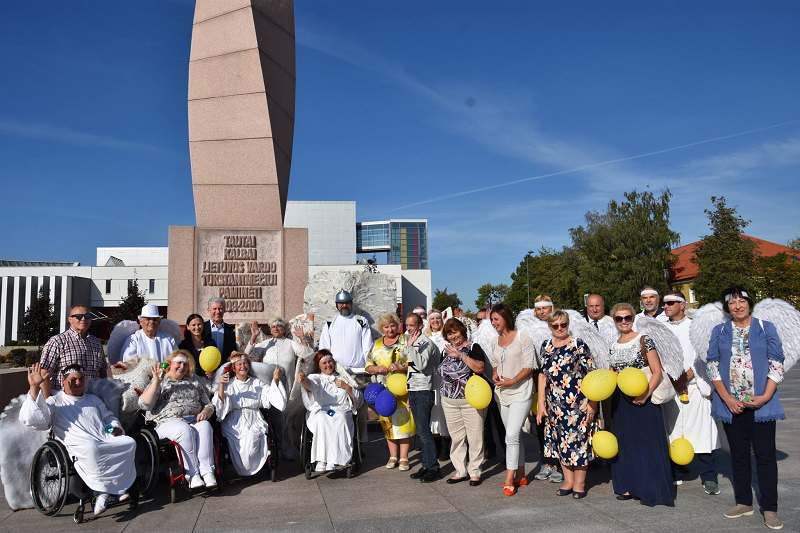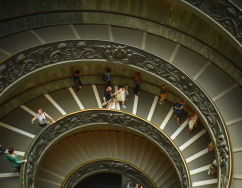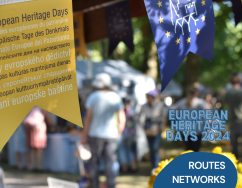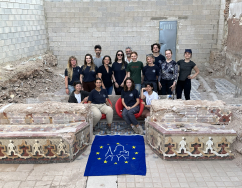Heritage: All Inclusive (2021)

European Heritage Days has always had inclusivity at its core, with events and activities held across 50 countries celebrating not only our shared heritage but appreciating our diversity too. We’ve long held that exploring the rich mosaic of cultures in Europe promotes trust and understanding, encourages greater tolerance and promotes thinking beyond national borders. The past 35 years of European Heritage Days events have shown that when we all take part in our shared cultural heritage, we all benefit. This year we’re continuing and reinforcing this with the shared theme for 2021, Heritage: All Inclusive.

Photo credits: Europos paveldo dienos Lietuvoje, Facebook page
Cultural heritage is a reflection of the people in a society; the self-expression of their evolving values, beliefs, knowledge and traditions. Putting people at the heart of this definition is a key emphasis of the Convention on the Value of Cultural Heritage for Society – the Faro Convention, 2005 – which also asserts the importance of access “by each heritage community to the cultural heritage with which it identifies.” The theme encourages discussion and engagement with the history and perspectives of all races, ethnicities, genders, ages, religions, abilities, and sexual orientations.
Through this year’s theme, we invite national and local organisers to continue expanding what they offer to visitors, reaching out to and working with more diverse audiences. We’ll be helping event organisers address barriers and consider how they can reach and increase engagement amongst traditionally under-represented and marginalised groups in the presentation and interpretation of cultural heritage. Initiatives such as co-production and volunteer programmes; assessing venue choice and topics for exhibition curation and storytelling; as well as producing a range of cultural experiences such as dance, film, music, literature and food can all help generate new ideas and provide diverse voices. We want to hear everyone’s story and celebrate them equally.
We also want to consider visitor inclusivity at the point of access. Offering events which are welcoming, accessible and open to all is critical for ensuring wide audience involvement. Heritage: All Inclusive should inspire event organisers to assess their events in the context of the different experiences and needs of visitors and make adjustments to make sure they can be enjoyed by everyone. European Heritage Days has always offered free events, but it’s important to recognise that other costs such as travel can still reduce participation. We’ll also be looking at how to address other barriers such as physical access and language, as well as encouraging a wide variety of events such as creating sensory activities and environments friendly to neurodiverse audiences.
Heritage: All Inclusive has a broad remit and an ambitious goal, but sometimes even small changes can help make a big impact. There are many ways for programmes to get involved with and support this year’s theme, from forging new partnerships and connecting with wider audiences through new events, to re-assessing existing venues and materials. Find out more about how to start planning for more inclusive events with our Toolkit, and follow our newsletter and social media feeds for future updates and more helpful guides and ideas.
Don’t forget to check out our Heritage: All-Inclusive brochure (English/French) for innovative case studies highlighting creative ways in which communities and heritage professionals have worked together to include traditionally under-represented and marginalised groups in the exploration, presentation, and interpretation of cultural heritage.



